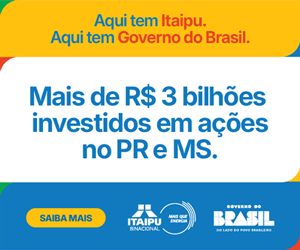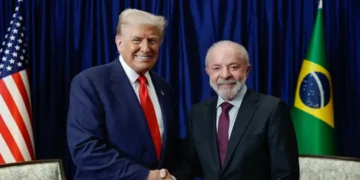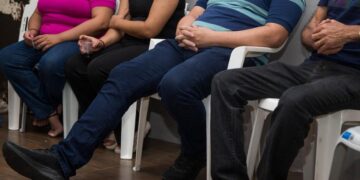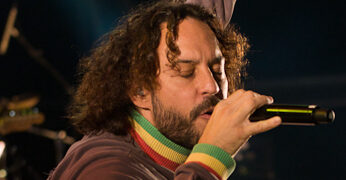On its 75th anniversary in Brazil, the United Nations Children’s Fund (UNICEF) has been one of the main partners in promoting and defending the rights of Brazilian children and adolescents.![]()
![]()
When it started its activities in Brazil, 158 out of every 1,000 children born died before their first birthday—16 out of 100 babies. Today, this percentage has plummeted 90 percent, to 12 children per thousand. This decrease is the result of the efforts of UNICEF, together with public authorities and nonprofits.
Over seven decades, UNICEF’s work in Brazil has also focused on other fronts besides health care. These are initiatives in education, protection, and combating poverty and other problems assailing Brazilian children and adolescents.
The achievements and challenges can be found in the book UNICEF, 75 anos pelas Crianças e pelos Adolescentes – Uma História em Construção (“UNICEF, 75 Years for Children and Adolescents – A History in the Making”) and in the exhibition Passos para o Amanhã (“Steps to Tomorrow”), launched Wednesday (Jul. 16) during a commemorative event at the Itamaraty Palace, the seat of the Ministry of Foreign Relations in Brasília.
The exhibition pays tribute to the progress made by the federal government on behalf of Brazilian children and adolescents through a series of sculptures signed by artist André Alves de Freitas. Each of the six sculptures symbolizes areas in which UNICEF’s work has contributed to changing realities—vaccination, basic sanitation, education, citizen participation, reducing child mortality, and climate change.
Transformations
Over the course of seven decades, UNICEF has been present in Brazil’s main social and political transformations, contributing, together with the Brazilian government and other partners, to decisive moments, such as the approval of an item through the 1988 Constituent Assembly, which included in the Brazilian Constitution the duty “of the family, society, and the state to ensure the child, adolescent, and young person the right to life, health care, food, education, leisure, vocational training, culture, dignity, respect, freedom, and family and community life, as well as protecting them from all forms of neglect, discrimination, exploitation, violence, cruelty, and oppression.”
UNICEF also helped in the debates that resulted in the creation of the Statute of the Child and Adolescent (ECA), and has also worked to formulate and implement public policies aimed at reducing infant mortality, strengthening public health care and expanding access to quality education.
“The rights of children and adolescents are an unfinished agenda, because there are always old challenges still being faced in addition to new ones emerging. Society is also continually changing and demanding new rights for boys and girls,” said UNICEF representative in Brazil Youssouf Abdel-Jelil.
Milestones
In addition to various projects in Brazil, the UN institution contributed directly to the creation of the Ministry of Health’s National Immunization Program (PNI) in 1973, which made Brazil a model for childhood vaccination.
In 2020, during the COVID-19 pandemic, UNICEF’s efforts focused on protecting the rights of children and adolescents with initiatives related to water, sanitation, and hygiene in vulnerable territories. From 2020 to 2022, over 17 million people benefited from emergency actions promoted by the organization.
Challenges for the future
For the future, UNICEF said there is much to be done to guarantee the full rights of children and adolescents in Brazil. Among the main demands listed by the institution are reducing poverty and inequality—including guaranteeing access to quality health and education—and tackling violence against children and adolescents—the only item for which Brazil has failed to make progress in recent decades. The violent deaths of children and adolescents, especially black boys, are still a reality that needs to be addressed.
The organization also named challenges linked to mental health in an increasingly connected world, migration, and efforts to mitigate the climate emergency.
Regarding the last topic, UNICEF talked about the COP30 in Brazil, stressing the need to bring the people under the greatest vulnerability at the center of the national and global agenda.
“We have to keep working on this unfinished agenda alongside communities, governments—at various levels—society, the private sector, and children and adolescents themselves, to guarantee a safe and prosperous present and future,” the UNICEF representative in Brazil concluded saying.
Crédito arquivo Nacional EBC
Leia Mais em: O Maringá











